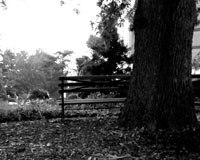
Indus, 3180 km
"We'd push them off a peak, then they'd push us off a peak, but nothing significant happened"
- speaking of Siachen, Ali Kuli Khan Khattak, retired Pakistani General
I
In Hyderabad
(no, the other one in Sindh, Pakistan)
Umair, after strolling aimlessly in the Giddu Park,
walks down the banks
of the Indus
and lowers his feet into the water
and finds, half lodged in sand
a fruit, small and dark,
like a custard apple
under the water
interfering with sunshine.
Curious – he had had nothing to do all day,
the school had closed for the summer –
he dips his hands into the river
and pulls at it.
II
In Siachen
(no, not in Pakistan,
not in any country, but in snow
where borders fall through crevasses)
in the glacier whose name means ‘abundance of roses’
Vijay, after the daily training,
the evening ice-wind still whipping his face,
walks back to the camp
a file of soldiers long behind him
unthinking, he reaches for his back-pack,
for a photograph that he had stolen from her desk
in which he and Reema
then only twenty-two
pretend casualness against the fake bluish-white backdrop
of the photo-studio in Bareilly
it was a few months since they had met, and
their eyes are only roses
this photograph, Vijay reaches for, stealing memory from snow,
finding it difficult to breathe
memory stealing oxygen from air
and as if
under the weight of this breathing
– the backdrop in the photo studio
was snow-capped mountains –
of all this past coming like frost
and settling around him, he remembered another friend
long since gone back to the plains
who one day,
when the air was ice,
had held him close and
told how he now finds little things difficult
‘‘the doctors,’’ he said, ‘‘call it cerebral edema,
there is no oxygen here
– Vijay, at that point,
found his eyes so blue that he wanted to give
all his share for him to breathe –
all this staying here,
this air, causes damage to the brain,
that is what they said.
I will carry the mountains
back to the plains as a kind of inability.’’
In those first few days, he had not fully understood but
he knew from those words, which came slow
and measured
‘‘People have to speak slowly to me now,’’
he had said, ‘‘like when they give their phone numbers,
I take time, I have to think, ‘zero – what is zero?’"
and with this, as if something had struck
Vijay felt the load of his usual back-pack
heavier than ever before
tearing down his shoulders
no war is ever light but none
was heavier than this
none more futile than this – ‘what is zero,’ he had asked –
none more parched than this
why are the battles of the people of the plains
always fought in the mountains?
now, he felt the bluish-white all around him
– the colour of burning sulphur is bluish-white,
the colour of hell is burning sulphur –
and, all passion now,
he began to unload his equipment
and throw it into the deep crevasse which
the soldiers’ file was slowly edging
first the pick-axe, then some ammunition shells,
lightening the war, one by one
the soldiers behind him saw
and began to approach quickly, to keep him from this,
from harm, to hold him and explain
again
he threw three cans of extra-protein biscuits,
one fuel container
and when he made
his bag empty of almost all things
save Reema and him, rose-like, in the studio in Bareilly
he threw at last – the glacier received it as parcel –
as the light began to fade,
like a custard apple,
small and dark,
one grenade.
(for Nauman Ahmed)
Akhil Katyal is a writer and translator based in Delhi where he also teaches literature at Shiv Nadar University. His writings and translations have been published in the North East Review, The Four Quarters Magazine, The Bangalore Review, Ezra - Journal of Translation, Earthen Lamp Journal, The Nether Magazine, among others. Write to him at akhilkatyal@gmail.com.

